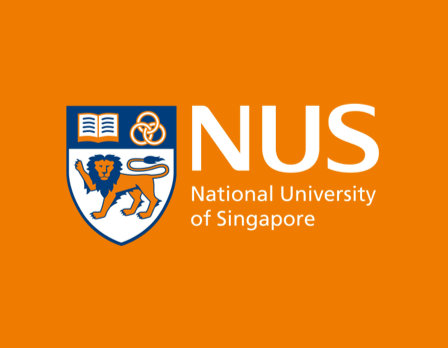What if a simple eye scan could predict dementia years before symptoms appear? Or if a half-hour brain scan could save millions in healthcare costs while improving accuracy? These are just a glimpse of the realities being shaped at the Yong Loo Lin School of Medicine, National University of Singapore, — such advances reflect its enduring role as a leader in shaping healthcare and medical education worldwide.
NUS Medicine stands as the 1st medical school in Asia, 18th in the world for Medicine by QS World University Rankings 2025, and 17th globally by Times Higher Education (THE) World University Rankings by Subject 2025: Medical and Health.
Every medical school is good at diagnosing and managing diseases, I believe that a medical school should go beyond disease. So now we are looking at health” says Professor Chong Yap Seng, Dean of NUS Medicine.
This philosophy shapes the School’s Master’s programmes, which aim to equip professionals with the skills to translate knowledge into meaningful impact.

The NUS Yong Loo Lin School of Medicine is Singapore’s first and largest medical school. Source: NUS Medicine
Building expertise for a changing world
The aim is to help health and science-focused students build on existing expertise while expanding into specialist areas. Candidates from other academic backgrounds may be considered if their experience aligns closely with their chosen programme’s aims.
This openness is fuelled by the fact that healthcare today is not defined by doctors alone. NUS Medicine believes it is equally shaped by data scientists developing predictive algorithms, nutritionists designing preventive strategies, policymakers driving sustainable systems, and researchers transforming the understanding of disease.
Each master’s by coursework programme offered is anchored in NUS Medicine’s academic and industry expertise while aligned to three commitments:
Driving innovation in healthcare
Medical innovation is advancing at a rapid pace. Global healthcare expenditure is expected to exceed US$10 trillion well before 2030, much of it driven by the development of new therapies and technologies. NUS Medicine plays a central role in this innovative ecosystem, producing discoveries in pharmacology, genomics, and biomedicine that directly inform clinical practice.
Ranked 8th by QS World University Rankings 2025 for Pharmacy & Pharmacology, the MSc in Medical Pharmacology equips students with expertise in pharmacology, toxicology, regulatory sciences, and pharmacology education — preparing them to advance the development of safe and effective medicines for patients. The MSc in Precision Health and Medicine builds on cutting-edge fields including genomics, proteomics, drug discovery, AI, and big data analysis. The MSc in Applied Biomedicine adds a unique dimension with dedicated courses on leadership in biomedicine and bio-innovation.
For practising clinicians in Singapore, the Master of Clinical Investigation is the ultimate foundation for advanced research training, including PhD pathways. It develops advanced research skills to evaluate new treatments, technologies and healthcare systems, and bridges laboratory discovery and patient care while fully leveraging Singapore’s position as a biomedical hub.
Whether developing new diagnostics, exploring drug mechanisms, or tailoring treatment strategies to individual patients, graduates from these programmes are primed to support drug discovery and therapeutic innovation in both clinical and industry settings.
Innovation today also relies on the ability to harness data. The MSc in Biomedical Informatics highlights this, training professionals in evidence-based clinical decision-making, machine learning, data visualisation, large language models, entrepreneurship, and strategic leadership. Graduates are prepared to critically evaluate clinical decision support systems and design digital tools that improve patient care and population health.

Source: NUS Medicine
Leading change in health systems
Even the best discoveries matter little if they cannot be applied effectively on a scale. The World Health Organisation has warned that half the world’s population lacks access to essential healthcare, underscoring the urgent need for systems that are both sustainable and equitable. NUS Medicine responds to this challenge through programmes that combine classroom learning with applied projects training professionals to design interventions that work in practice, not just theory.
The MSc in Behavioural and Implementation Sciences in Health –– the first programme of its kind in Asia –– sees students mastering methodological and statistical approaches to evaluate how evidence-based interventions are implemented, disseminated, and scaled, while also learning to apply economic analysis to inform health policy and decision-making. The MSc in Sustainable Healthcare –– the world’s only master’s dedicated to this field –– responds to the urgent need to decarbonise healthcare and build systems that are both environmentally and financially sustainable.
Championing prevention and global health
Prevention has the potential to save millions of lives and billions in costs each year. Leading medical journal The Lancet has noted that preventable chronic diseases account for more than 70% of global deaths, while infectious diseases continue to disrupt societies and economies. As highlighted above, NUS Medicine’s teaching and coursework reflects these realities.
Focusing on evidence-based interventions in lifestyle and nutrition, the pioneering MSc in Nutrition and Lifestyle Medicine trains professionals to respond to the growing challenges of Asia’s ageing populations and the rising prevalence of chronic conditions such as diabetes, cardiovascular disease, and obesity.
Meanwhile, the MSc in Infectious Disease Emergencies, which is the first and only of its kind, prepares graduates to manage outbreaks and pandemics –– sought after expertise in ministries of health as well as international, national, and subnational public health organisations.
Why choose NUS Medicine?
At NUS Medicine, students are immersed in an environment where academic excellence meets practical relevance. Guided by world-renowned faculty, they engage in coursework enriched by cutting-edge discoveries, participate in supervised research, and, most importantly, become part of a community committed to shaping the future of healthcare.
Graduates leave with more than a degree — they gain the skills, networks, and perspectives needed to drive change across sectors, from hospitals and government agencies to research institutes and the healthcare industry.
As healthcare continues to evolve, the world needs professionals who can innovate, lead, and inspire. At NUS Medicine, you will be prepared to do exactly that.
Take the next step. Apply now to Asia’s top medical school.
Follow NUS Medicine Graduate Studies on Facebook, LinkedIn and YouTube.











